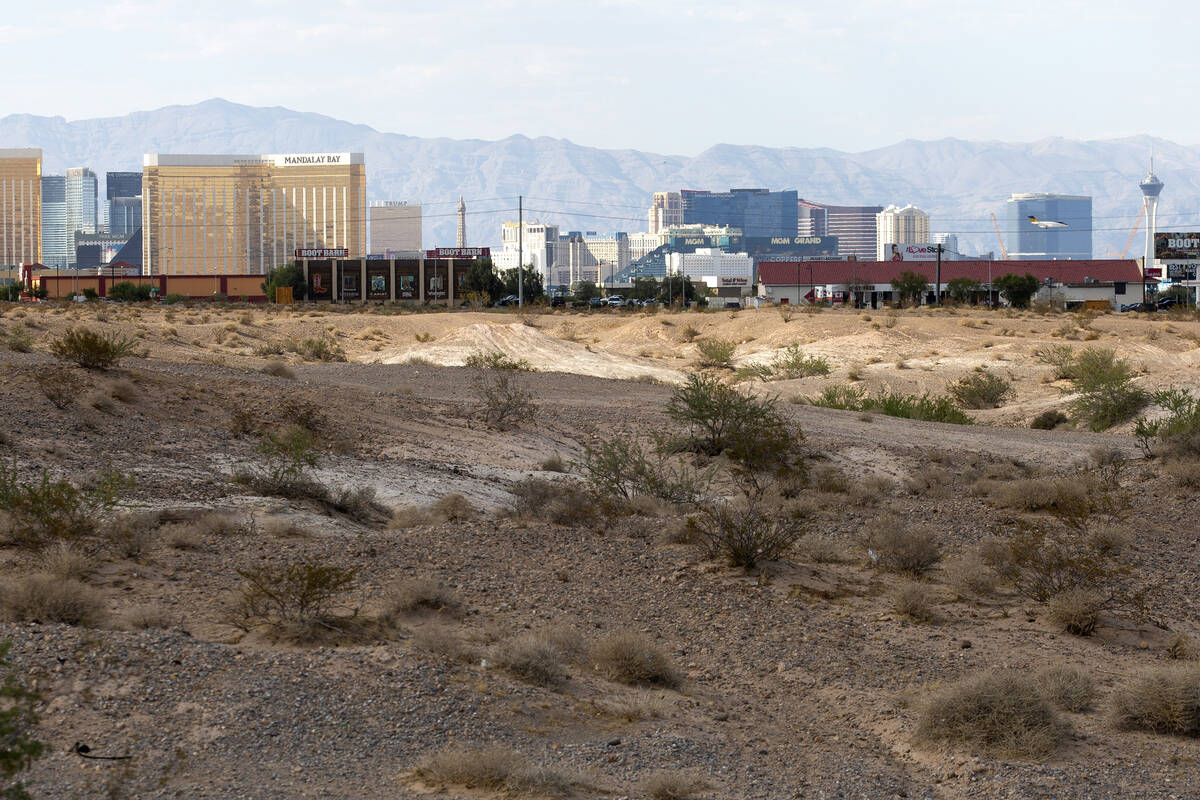EDITORIAL: Rebutting concerns from left, right about releasing federal land
Two common objections to selling a tiny portion of federal lands in Nevada don’t hold up to scrutiny.
President Donald Trump’s big, beautiful bill contained many positive elements, but some great ideas didn’t make it. That list includes attempts to release more federal land in the West for development. In the aftermath, critics of the idea on the left and right took a victory lap. But the issue isn’t going away. Reducing home prices will require building more homes. That will require more land.
This is especially true in Nevada. The federal government controls around 85 percent of the real estate in the state. In Clark County, it’s closer to 88 percent. Leave the Las Vegas metro area and drive to Mesquite, Laughlin or Searchlight. You will see a whole lot of empty space. It’s hard to develop land that Washington “owns.”
In the House version of the bill, Rep. Mark Amodei wanted to force the federal government to sell 65,000 acres in Clark County. It would have opened up housing and development around Mesquite, Searchlight and Moapa.
Rep. Susie Lee said his “traitorous maneuver” was an affront to Nevada because it would allow the federal government, rather than state or local interests, to keep the money from the sales. Rep. Dina Titus also complained, “We don’t get any of that money.”
That isn’t surprising. The property may be in Nevada, but Washington oversees it. The federal government normally keeps the money when it sells land.
One notable exception was the 1998 Southern Nevada Public Land Management Act. This law kept money from Nevada public land sales within the state. A similar proposal would be great, but no Nevada Democrat has the same political juice that the late Sen. Harry Reid did. This argument has turned into a convenient way to justify Democratic opposition to Nevadans gaining access to additional land.
It’s also short-sighted. The sales would generate proceeds for Nevadans. Opening up land in rural Clark County would boost overall property tax valuations. That would strengthen the Southern Nevada economy and increase tax collections. As the years went by, that would be worth more than the proceeds of the initial sale.
Many on the right opposed land sales for a different reason. Once the bill reached the Senate, Sen. Mike Lee, R-Utah, offered an alternative proposal to sell a tiny portion of federal land near population centers. Outdoorsmen opposed the bill because they feared it would reduce opportunities to hunt, fish and hike.
That concern is overblown, and not just because Rep. Lee’s proposal was narrowly crafted. In 2023, the three states with the most paid hunting license holders were Texas, Pennsylvania and Georgia. In Texas and Pennsylvania, the federal government owns around 2 percent of the land. In Georgia, it’s 13 percent. Private land ownership hasn’t stopped people from enjoying the outdoors. Conservatives are supposed to understand that outside of government’s core functions, private ownership is almost always preferable to government control. That includes land management. Just look at all the wildfires on public lands in Western states.
Some critics on the right suggest that their objections could be overcome if they knew which parcels would be sold. In that case, they should eagerly support Mr. Amodei’s proposal.
Southern Nevada is running out of developable land, while being surrounded by land that could be developed. It doesn’t have to be this way. The federal government needs to reduce its vast land holding in Nevada, particularly near urban centers.

















